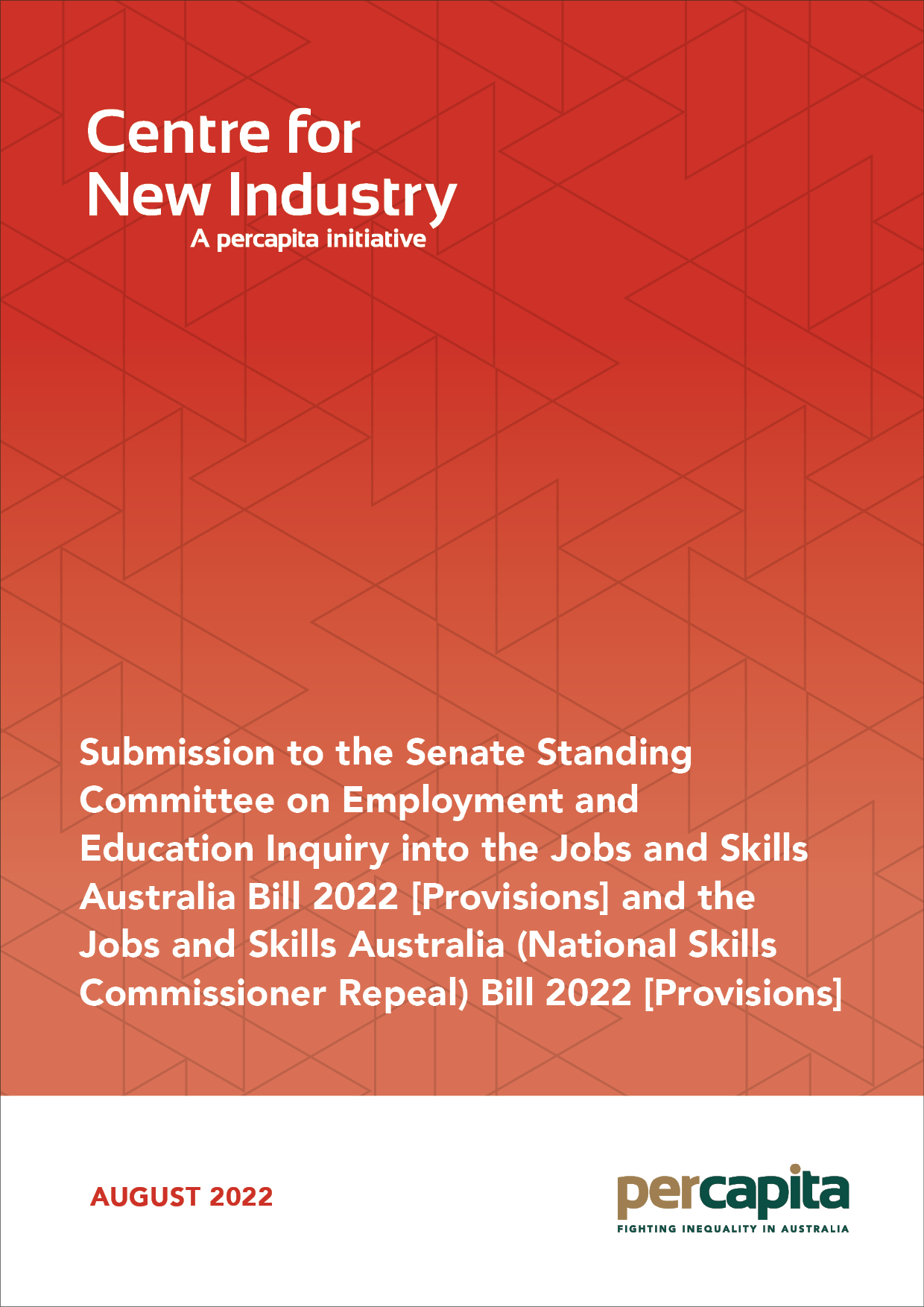As Australia emerges from the long tail of the COVID-19 pandemic and its associated economic crisis, the fault lines in our economy resulting from a decade of mismanagement and neglect have been exposed. As businesses shut their doors and economic actors, both public and private, scrambled to address the lack of ventilators, intensive care beds and personal protective equipment for frontline medical staff, the supports and supply chains that sustain our economy were shattered, leaving many without work or the necessities required to weather the storm that the pandemic created.
However, long after the lockdown ended and the economy ‘snapped back’ to life, the enduring scarring effects of the labour market contraction are being intensely felt, particularly by young workers, recently arrived migrants and other recent entrants to the labour market. In particular, the complications of a labour market with generations of slack in the system have been exacerbated by a crisis that pushed our economy to breaking point.
These cracks in the foundation have been driven in large part by a long-underdiagnosed skills deficit that has come to the fore in the aftermath of the pandemic. This deficit has been driven by two main opposing pressures, as too many recent entrants to the labour market are locked into cycles of un- and under-employment in short term, insecure service jobs and at the same time the economy has been plagued by nation-wide skills shortages in crucial industries, across multiple trades, the bourgeoning technology sector and in crucial care work.
Worse still, for the better part of a decade, the approach to addressing the slack so obvious in our system has been a privatised employment services sector that incentivises a ‘work first’ attitude to labour market transitions. Unemployed people need to be moved off income support and into work, any work, regardless of the security or long-time viability of that work.
While many commentators have been quick to point to the dropping unemployment rate as proof that we are in a ‘Full Employment’ economy, and that there is a labour shortage that can only be filled by migration miss the qualitative experience of unemployment, underemployment and structural inequality existence within our system.
In short, true Full Employment is not a simple statistical equation that determines a low unemployment rate, but a context in which the people who comprise the economy and our society are able to live well, with secure, safe and satisfying work that they can build a good life around. While we may have weathered the crisis through a combination of good fortune and decisive action, the storm is far from over.
While the impact of this once in a generation pandemic has upended many aspects of our economic and social lives, and we may never return to the same kind of ‘normal’ we had before, we must also realise that this is not an absolute negative. We must view the crisis and its aftermath as an opportunity to challenge the orthodoxies and shibboleths of our political economy and seek to interrogate them anew. There are lessons to be learned from every big disruption, and we have an opportunity to rethink some entrenched ideas and practices that may once have seemed unchangeable but have long since stopped being fit for purpose in a modern, innovative and inclusive economy.
The solutions to these complicated and interconnected problems will not be simple, and there is no quick fix. However, the need for a smart, agile and active coordinating skills authority is paramount to addressing the challenges that these structural problems present us.
Therefore, this submission supports the proposed Jobs and Skills Australia Bill 2022 [Provisions] and the Jobs and Skills Australia (National Skills Commissioner Repeal) Bill 2022 [Provisions] as crucial and necessary legislative reforms that build towards a true Full Employment economy. In particular, the following submission highlights the challenges of skills mismatch and underutilisation, the crucial role that funding plays in our vocational education and training system, the need for effective coordination and the importance of smoothing labour market transitions in a Full Employment economy.

